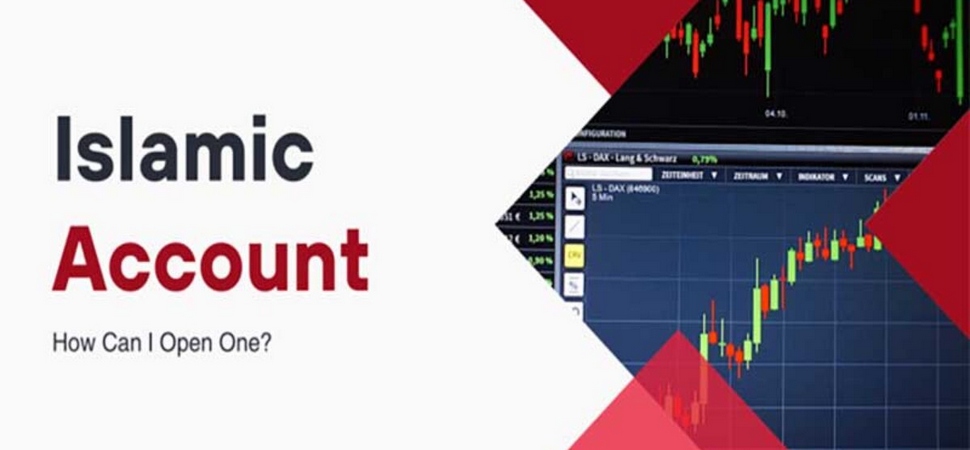13.06.2024
Евгений Лебедев
290

Halal foreign exchange trading is one of the areas of Islamic finance and has become an important trend in recent years. When conducting foreign exchange transactions, Islamic principles and guidelines must be strictly adhered to. In this article we will tell you everything you need to know about halal Forex trading.
Highlights and key points
Islamic Forex, also known as Shariah compliant Forex, offers Muslim investors an ethical way to participate in foreign exchange transactions while adhering to Islamic financial principles. A fundamental principle of Islamic Forex is the prohibition of riba (interest or remuneration), which ensures that there is no interest component to a transaction. Shariah compliant Forex emphasizes risk management, avoids excessive speculation and encourages responsible and ethical trading practices. Since Shariah compliance and transparent trading practices are the keys to success in Islamic Forex, choosing a reputable Forex broker is crucial.
Definition of Islamic accounts
Islamic Forex accounts are also known as swap-free or Shariah compliant accounts. These are special financial trading accounts designed for individuals who wish to participate in foreign exchange (Forex) trading while adhering to Islamic principles and complying with Islamic financial principles.
Key features of Islamic accounts
Islamic Forex accounts, like regular Forex accounts, have certain characteristics. Some of them are listed below:
- No Interest (RIBA): While Forex trading involves paying and receiving interest, Islamic Forex accounts do not involve any interest. Instead, they operate on a "no Riba" basis, which means that traders do not earn or pay interest.
- No Swaps: In normal Forex trading, currency pairs can be subject to swaps and carry trades. In Islamic accounts, such swaps are eliminated to follow the principles of Islam.
- Halal Trading: All trading activity on Islamic accounts must comply with Islamic principles and ethics to ensure that trades are halal and do not contain speculative or immoral elements.
- Immediate execution of trades: Islamic accounts usually offer immediate execution of trades to avoid delays and interest positions.
- No gambling or speculation: Islamic financial principles require that transactions be based on real economic activity and not on gambling or excessive speculation.
Islamic currency accounts are managed in accordance with Islamic finance principles. First of all, these principles prohibit the payment or receipt of interest (Riba). To comply with these principles, Forex brokers offer Islamic accounts, also known as swap-free accounts. These accounts do not involve charging interest in the form of swaps or rollovers.
If you are a Muslim and are interested in Forex trading, these accounts can be very helpful in order to practice trading in accordance with Islamic religious beliefs. Here's how it works:
Usually in Forex trading, interest is accrued or paid when you hold a position overnight, which is called a swap or rollover. This is called a swap or rollover. Instead, brokers offer an interest-free alternative. In addition, Islamic accounts may charge a commission or apply a spread markup to compensate for the lack of interest. So, as a broker, you can generate income without violating the principles of Islamic finance. Islamic accounts do not have a specific position holding period. This means that if you are a trader, you can hold positions for as long as you want without being charged interest. Unlike standard accounts where a trader can earn or pay interest for holding a position overnight, Islamic accounts allow you to continue to hold positions without accumulating interest.
Islamic accounts are transparent and Forex brokers disclose their commissions upfront. This transparency is only provided so that traders can conduct their Forex trading according to their faith. To open an Islamic Forex account, a trader may be required to provide proof of Islamic faith, such as a certificate from a religious authority. The broker will then review the application and authorize the account without swaps.
Sharia law and Forex trading
Sharia is a system of Islamic religious law and moral standards based on the Quran (the holy book of Islam) and hadiths (sayings of the Prophet Muhammad). It serves as a guide for Muslims in matters of faith, morality, and daily life. As you can imagine, Sharia law governs all aspects of Islamic finance, including the prohibition of Riba (interest) and Gharar (uncertainty) in currency trading.
Shariah principles in finance
If you use an Islamic account, you will notice that Islamic accounts adhere to certain Shariah principles, such as the prohibition of Riba (interest) and avoidance of Gharar (excessive uncertainty). The exclusion of swap bets in Islamic finance is an interesting point that may resonate with you, regardless of your religion. In conventional finance, swap rates are often linked to interest rates and many people, regardless of religion, may prefer alternative financial structures that do not rely on interest rates. This provides an insight into financial ethics. In addition, it is in line with the principles of Shariah.
In addition, no one likes excessive uncertainty in financial transactions. The principles of Islamic finance emphasize transparency and risk mitigation. Swap rates in conventional finance sometimes contain speculative or opaque elements. Therefore, if a person values clear and understandable financial transactions, they should avoid swap betting, regardless of their religion.
Features:
According to Shariah law, paying or receiving interest is strictly prohibited. This principle is based on the belief that money should not create more money without engaging in real economic activity. Instead, profits should come from trade and entrepreneurship.
- Islamic finance encourages risk sharing and emphasizes the concepts of mudaraba (a form of business contract in which one party contributes capital and the other makes a personal effort) and musharak (a partnership module in Islamic finance in which partners share the profits and losses of the business). In these contracts, profits and losses are shared between the parties. This encourages investment in productive, tangible assets rather than purely financial transactions.
- Shariah prohibits transactions with excessive uncertainty or ambiguity (Gharar). Contracts must be clear, transparent and free from unwarranted ambiguity or deception. For example, speculative transactions with uncertain outcomes are discouraged in Islamic currency.
- Islamic finance encourages asset-backed financing. This means that loans should be linked to tangible assets or services, and financial contracts should have a clear link to the underlying assets. This prevents transactions based on speculation and promotes real economic activity.
- Islamic finance avoids investing in businesses and industries that are considered haram, such as alcohol, gambling and pork. This ensures that financial activities are ethical and in line with Islamic moral principles.
- The concept of zakat (charity) is very important in Islamic finance. It obliges Muslims to give a portion of their wealth to those in need. This ensures a more equitable distribution of wealth.
- Islamic finance does not encourage predatory lending. This means that lenders are not allowed to take advantage of vulnerable borrowers and excessive penalties for late payments are unacceptable.
These principles aim to create a financial system that is more ethical, fair and focused on real economic activity rather than speculation. They emphasize fairness, transparency and a more balanced distribution of wealth. These principles have led to the development of various financial products and structures, including Islamic banking and Shariah-compliant investment options.
Benefits of Islamic accounts
An Islamic Forex account offers a number of benefits that are worth considering, even if you don't adhere to the principles of Islamic finance. Here are some of the benefits that you can appreciate as an investor:
- Ethical investing: By using an Islamic Forex account, you are investing ethically. This means that your investments follow the principles of fairness and transparency. It is not just about religion, but values shared by many investors. Therefore, you can be sure that your investments are free from practices such as usury (riba) and excessive uncertainty (halal), making your financial transactions more transparent and ethical.
- No swaps: One practical advantage is that there are no swap fees. Even if you do not adhere to Islamic principles, this is a significant advantage. In normal Forex trading, swap fees can increase and wipe out all profits. With an Islamic account, you don't have to worry about paying or receiving swaps. This makes trading more profitable.
- Risk Management: Islamic accounts often encourage risk sharing, which can be a profitable risk management strategy. If you engage in trading, sharing both profits and losses, your investments can become more stable and sustainable.
- Long-term perspective: Islamic finance encourages a long-term perspective. Even if you are not a Muslim investor, this approach can fit your investment goals. It promotes stability and allows you to focus on sustainable growth.
- Transparent and Fair Trading: A focus on ethical principles leads to more transparent and fair trading practices. You can expect clear and straightforward currency trading terms and conditions. This reduces the risk of hidden commissions and unfair practices.
In fact, even without adhering to Islamic financial principles, Islamic FX accounts can offer ethical and practical benefits. The absence of swap payments and a commitment to transparent and ethical investing make these accounts an attractive option for those who value honesty and profitability in their investments.
Conclusion
In conclusion, Islamic Forex accounts provide an opportunity to trade the Forex market while adhering to the principles of Shariah. These accounts offer ethical and moral investments, eliminate swap payments, promote risk management and provide transparency in trading activities. They provide a framework for fair and principled participation in Forex trading, regardless of religion.
